[ad_1]
Web development agencies on track to achieve greater heights are picky about the platform they choose to run their business.
They have to be. That’s because website creation grows more accessible each day to almost everyone, whether they’re a web developer or not. Therefore, if your web development agency doesn’t make the grade, you’ll soon find yourself struggling to find clients.
RELATED ARTICLE: 5 REASONS YOUR SMALL BUSINESS NEEDS A WEBSITE
In this post, we make a side-by-side comparison of Wix, a popular DIY-style website builder, and Duda, a platform that’s tailored to the extended needs of website development agencies.
Before anything else, though, introductions are in order.
Wix

Founded in 2006, Wix was introduced in a period of rapid change in the web development space.
Content management systems, blogging platforms, and other DIY site-building software were gaining a foothold. Similarly, Wix was released with the vision to make website development as easy as possible.
With Wix, anyone can build a professional-looking website within minutes, thanks to the wide selection of themes and templates for various categories. Users can then customize their creations via the drag-and-drop editor. This is perfect for website owners with zero design experience.
Duda

Next up is Duda, a younger platform with much bigger goals than its competitors.
Rather than focusing on website development only, Duda aims to provide the technology that web development agencies need to grow.
To that end, it helps web development agencies with client communications, team collaboration, and the agency’s branding efforts. And it does so with robust back-end tools. In other words, Duda is basically an all-in-one tool that can help web development agencies run their businesses.
Comparing Wix and Duda
Now for that side-by-side comparison we promised.
1. Flexibility
You can easily customize the websites you create with either Duda or Wix. That is, you can edit, move, and stylize every layer or section of content as you see fit.
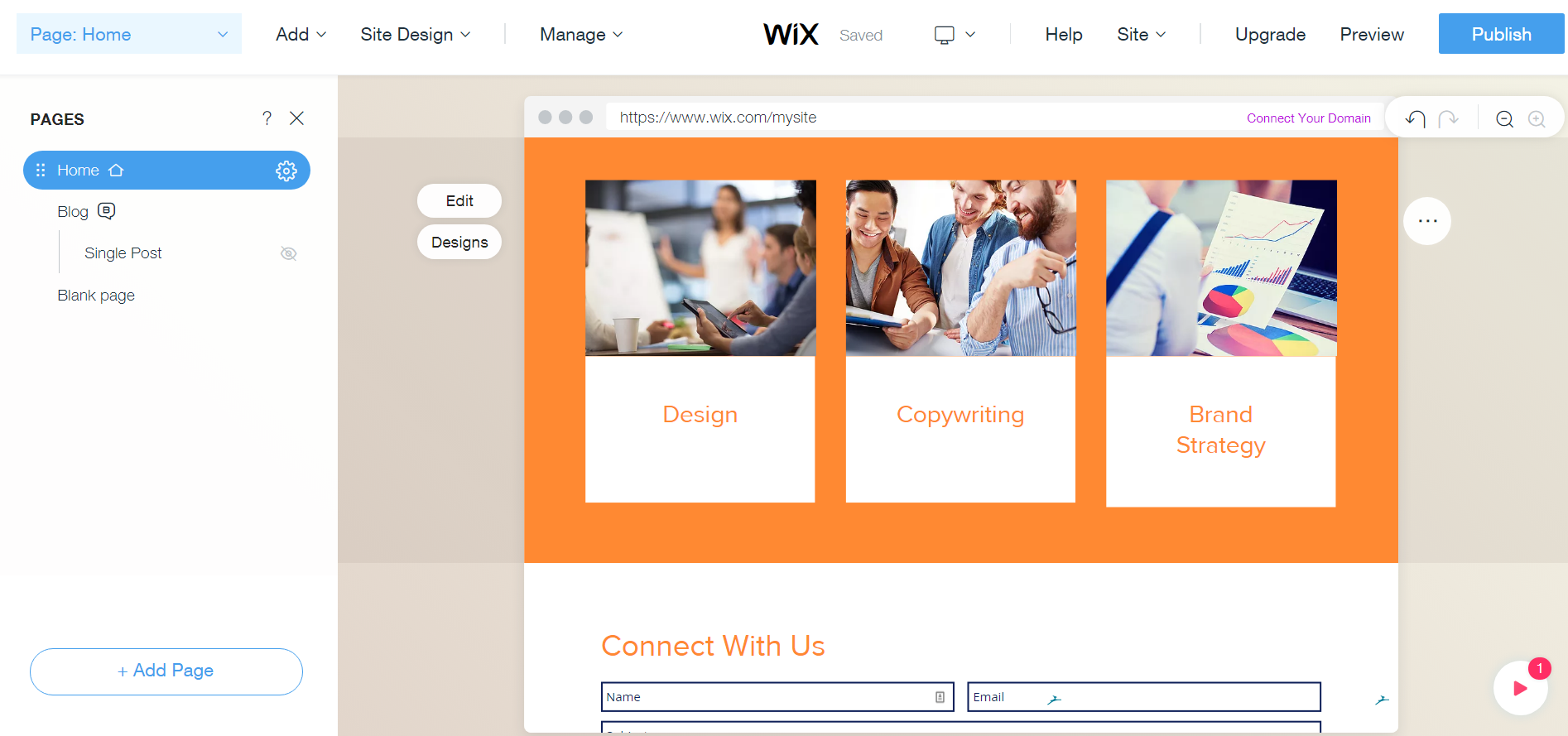
Unfortunately, though, Wix’s website editor is noticeably more theme-dependent and rigid. For example, you can only add page sections on top of each other. In contrast, Duda allows you to incorporate more website elements into different columns.

What’s more, Wix doesn’t permit you to modify any of the existing codes on your website. This is a huge disadvantage, especially to web development agencies whose developers need as much control with their projects as possible.
Wix does, however, enable you to add new layers of code by turning on the built-in Developer Tools. Still, it’s not nearly as powerful as the Duda code editor. This is a tool that essentially gives you the keys to everything.

Winner: Duda
2. Ease of Use
To be fair, both Duda and Wix offer an intuitive user experience that anyone can get used to in no time.
For example, Wix offers one of the most user-friendly interfaces around. Its minimalist dashboard and the convenient Quick Links tool make it easy to find the exact feature you need.
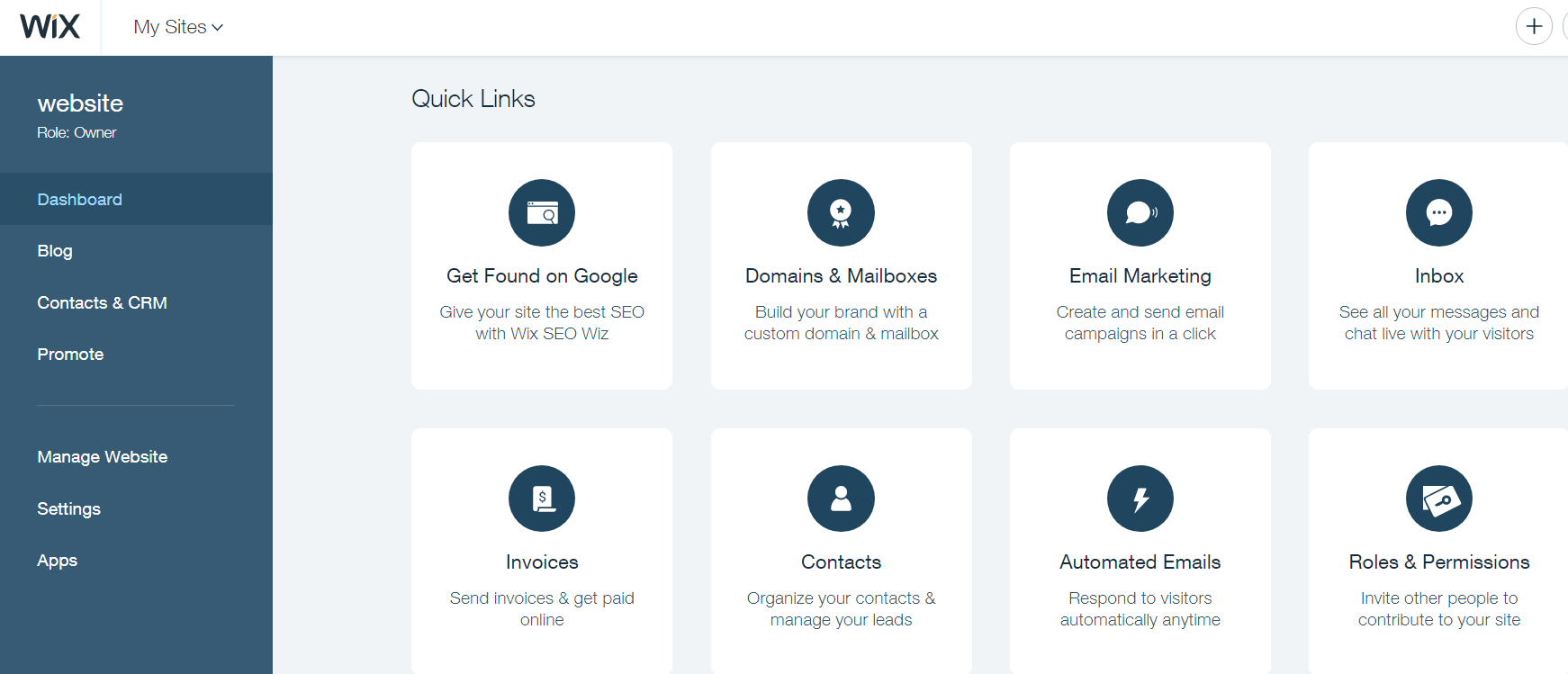
Additionally, the Wix website editor is tough to beat. It functions as a central interface where you can do practically everything, from connecting your own domain name to editing your on-page business details.
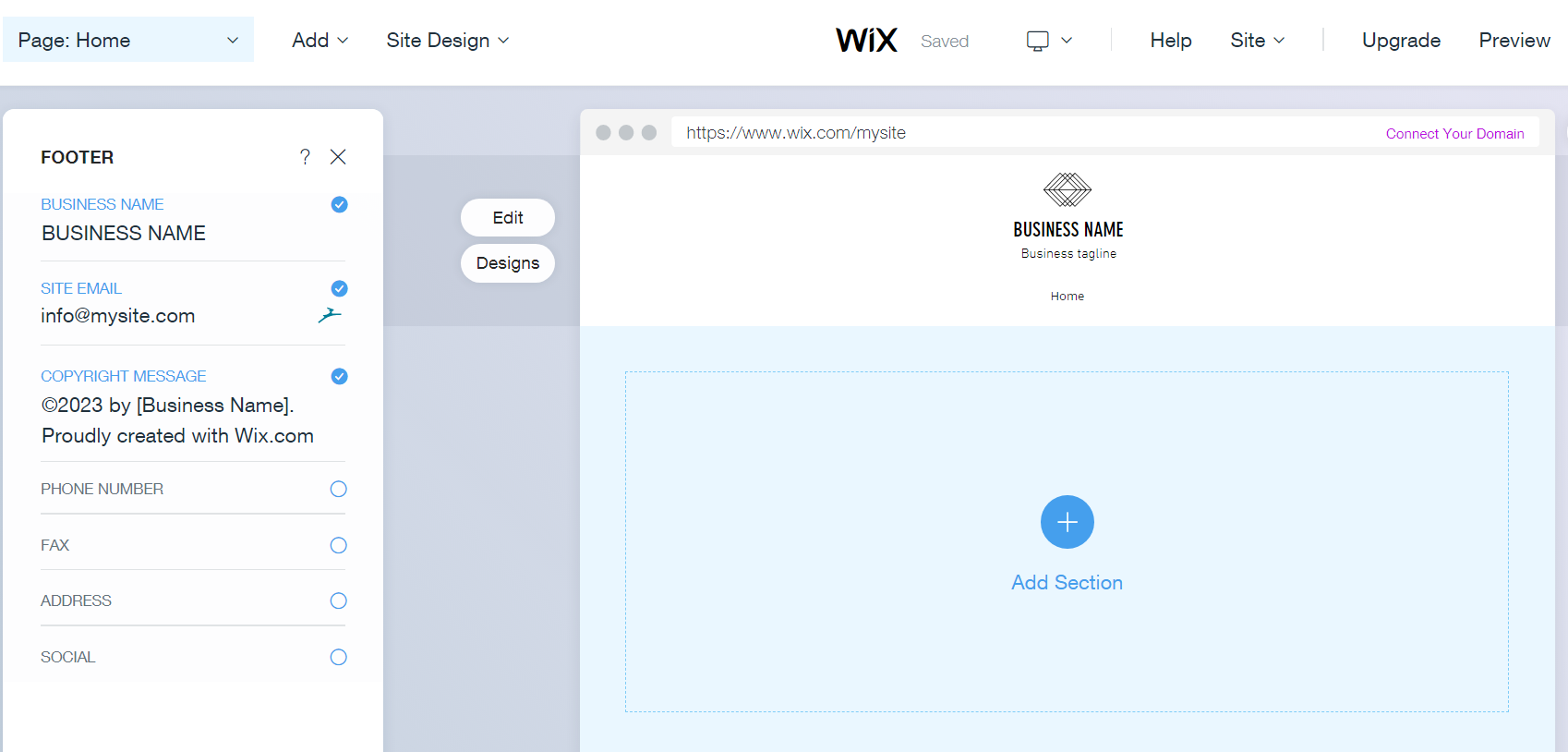
However, Duda also offers a level of usability that makes website creation a breeze.
In particular, the Widgets section in the Duda editor enables you to speedily construct feature-rich web pages. You simply need to locate the widget you want, drag it anywhere you desire, and make the necessary adjustments.
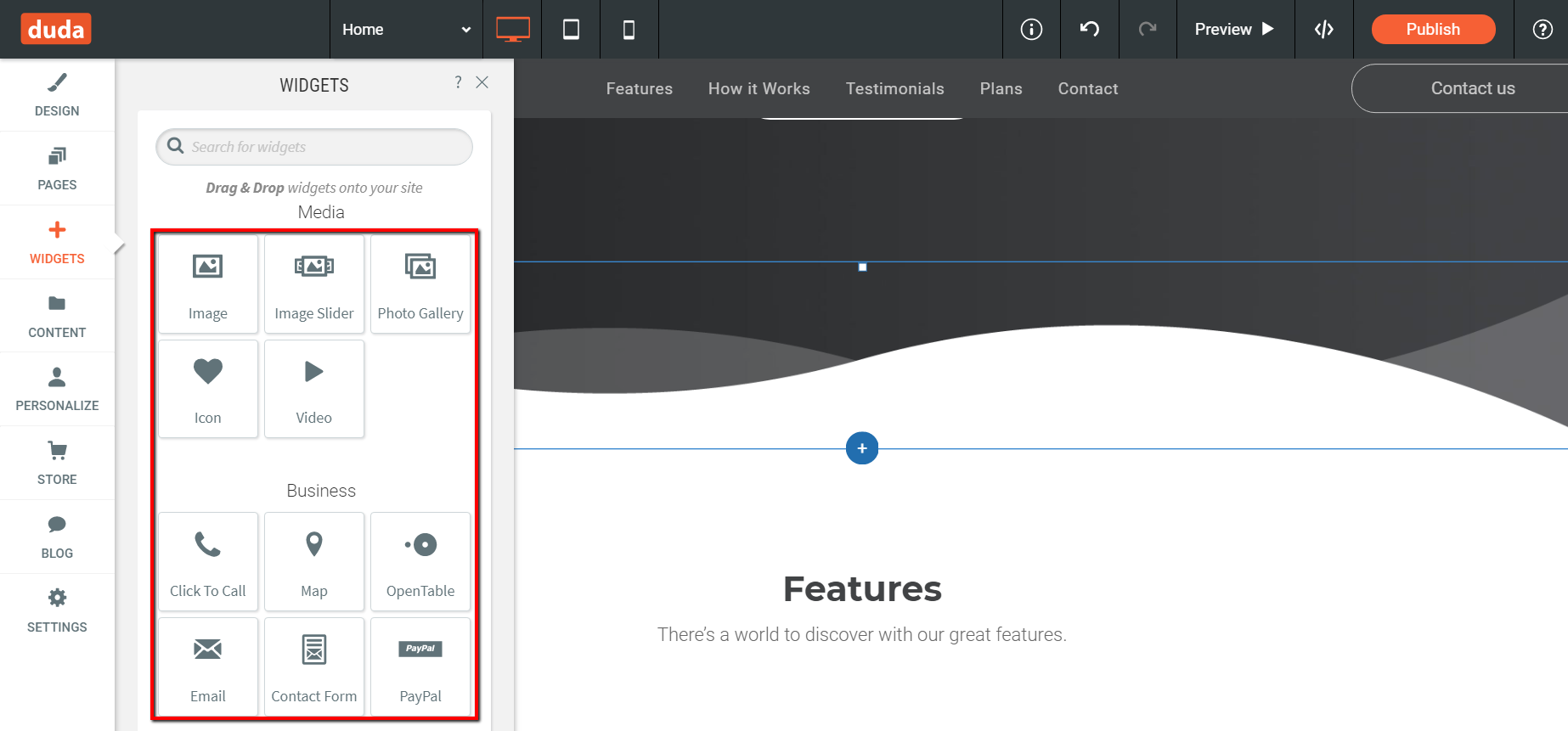
However, Wix has a trick under its sleeve that puts it a tad ahead of Duda in terms of usability.
Upon creating a website for the very first time, you have the option to let the Wix Artificial Design Intelligence (ADI) do the grunt work. As the name suggests, it’s an AI-based system that automatically designs a website according to your specific needs.
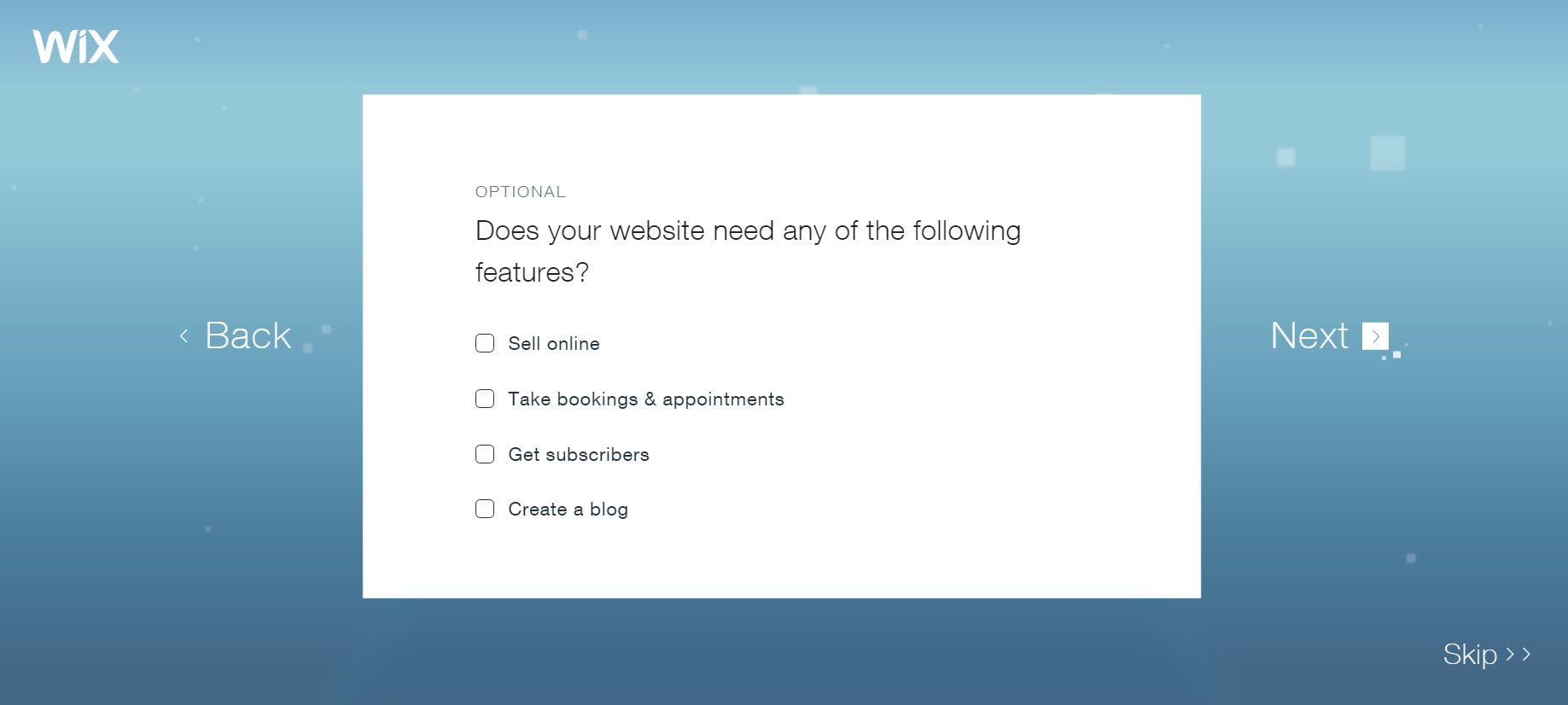
Although you can still fully customize the website you build through the Wix ADI, it often ends up looking generic at first. But since the first factor is all about ease of use, then we have to hand Wix a point here.
Winner: Wix
3. Asset Management
Effective asset management is one of the most important aspects of successful web development. Duda achieves this with the help of handy content collection and library management tools.
For example, if you already have an existing site or Facebook page you’d like to scrape content from, all you need to do is enter the right URL in the Import Content tool.
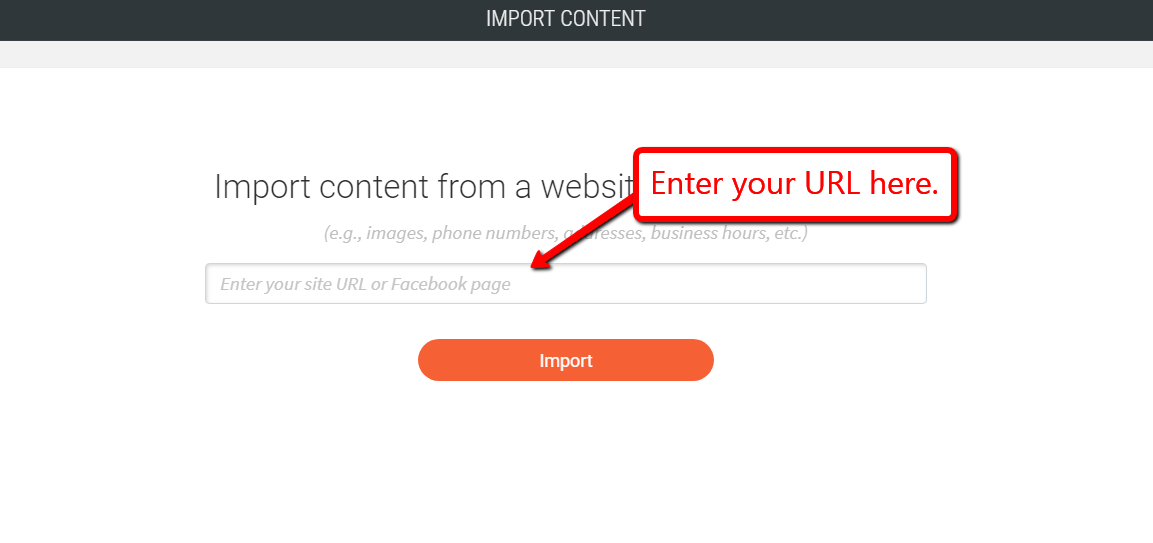
Duda also allows you to create a Content Collection Form. This makes it easier for your clients to submit everything they need on their website, including images, documents, videos, and so on.
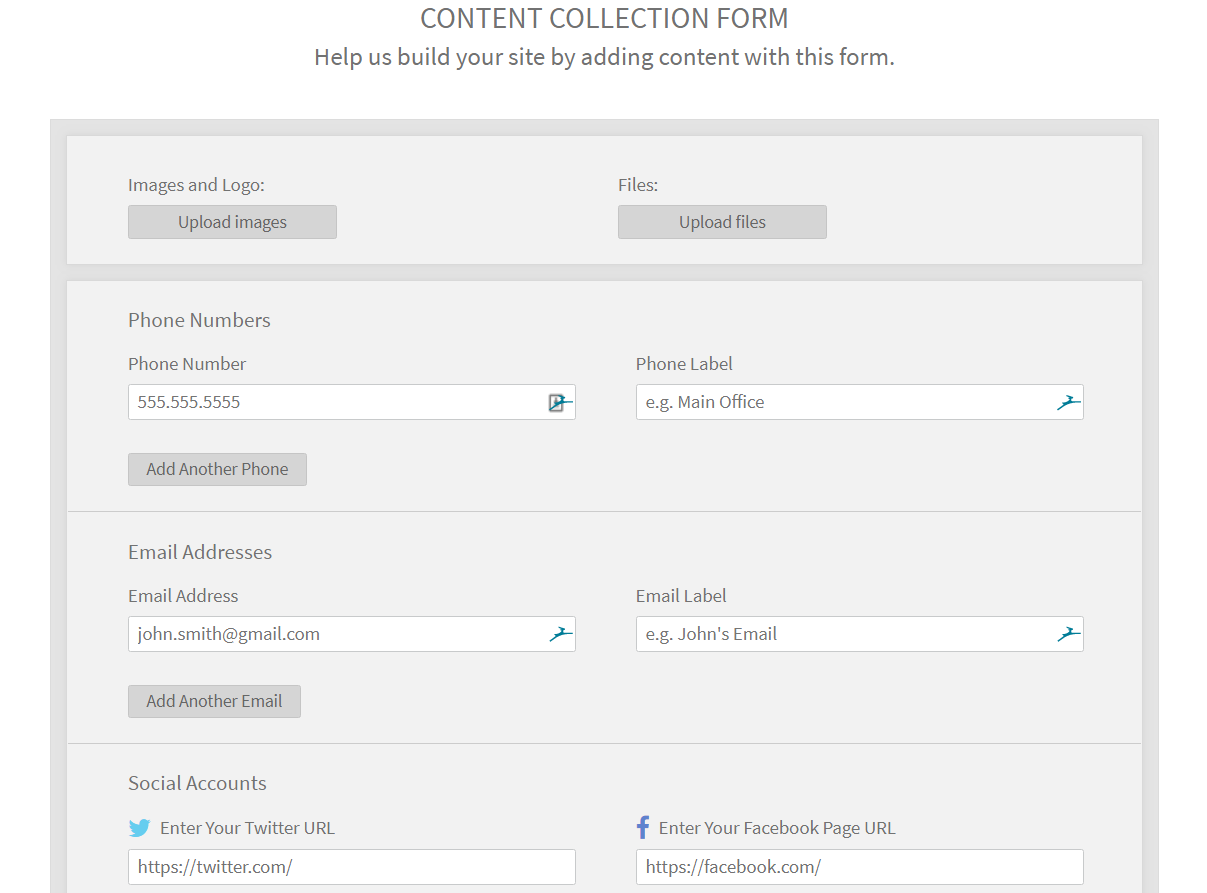
Once your clients have uploaded their assets to the content library, you can seamlessly plug them into their web page.

Wix, on the other hand, has an option that lets you import images from several online services. These include Google Drive, DeviantArt, Flickr, and social media networks. But for other types of content, such as videos, animations, and documents, you’ll have to obtain and upload them from clients yourself.
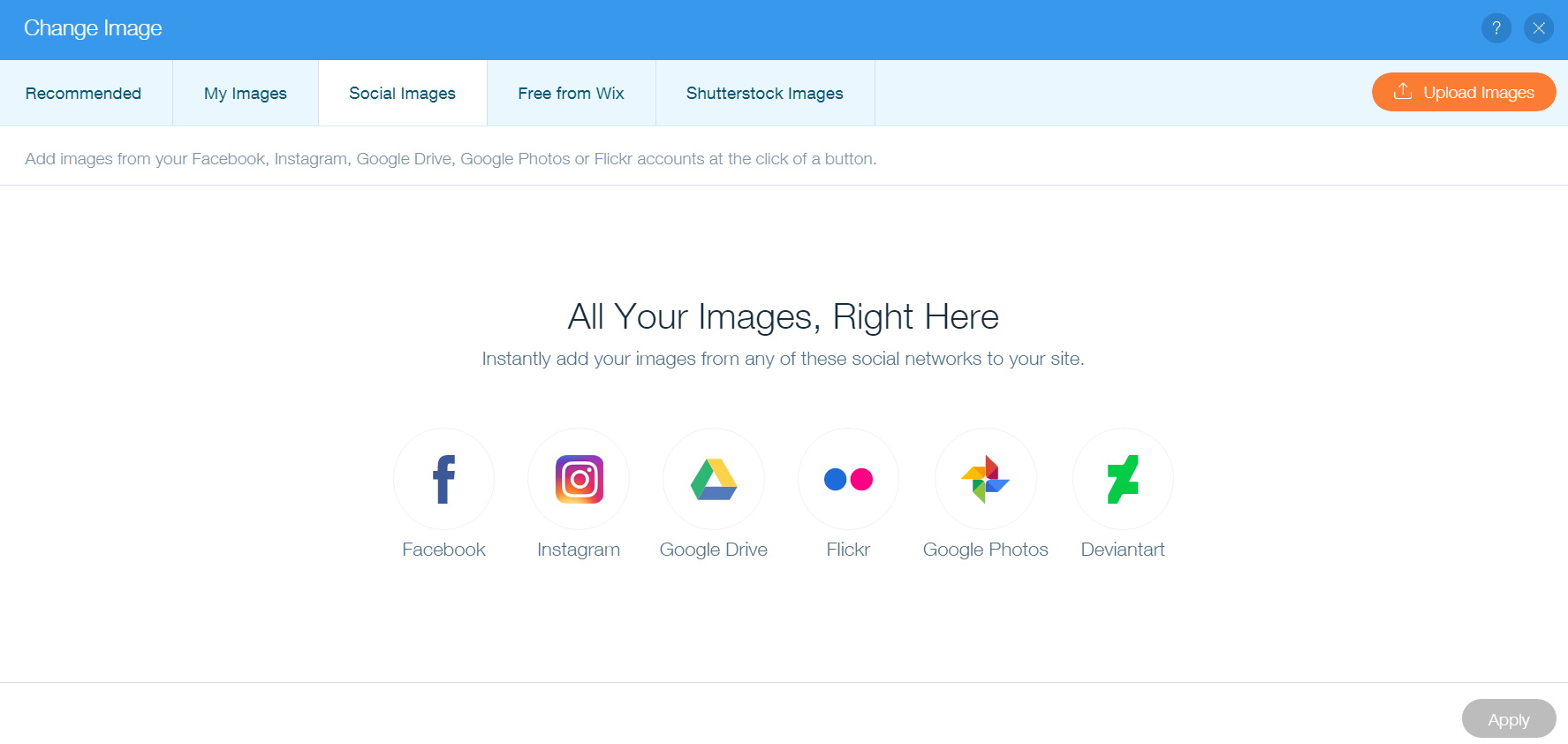
Overall, Wix’s asset management is a bit more tedious and time-consuming than what Duda has to offer. Sure, it maintains the drag-and-drop experience when you’re adding content to your web pages. However, it’s certainly not enough, especially for web developers, who expect to work with dozens if not hundreds of assets in multiple projects.
Winner: Duda
4. Extra Features
As a bonus round, let’s take a look at the extra features that Duda and Wix bring to the table.
First off is Wix’s features for music-related websites. In particular, let’s consider their already-configured Music Player and Tour Dates sections. You can add these to any page.
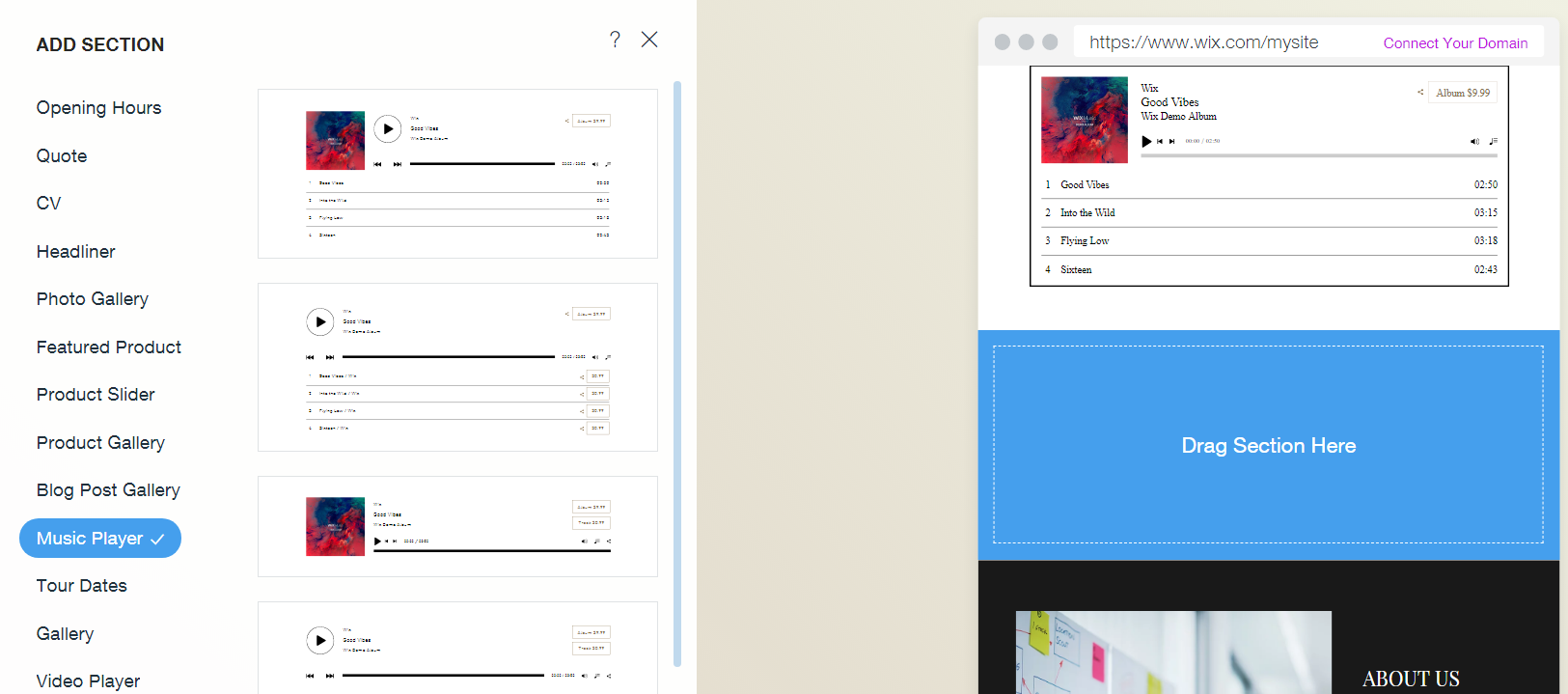
Once you’ve added them, you’ll have access to Wix Music. This is a central dashboard for managing your albums, singles, and playlists. Pretty cool, eh?
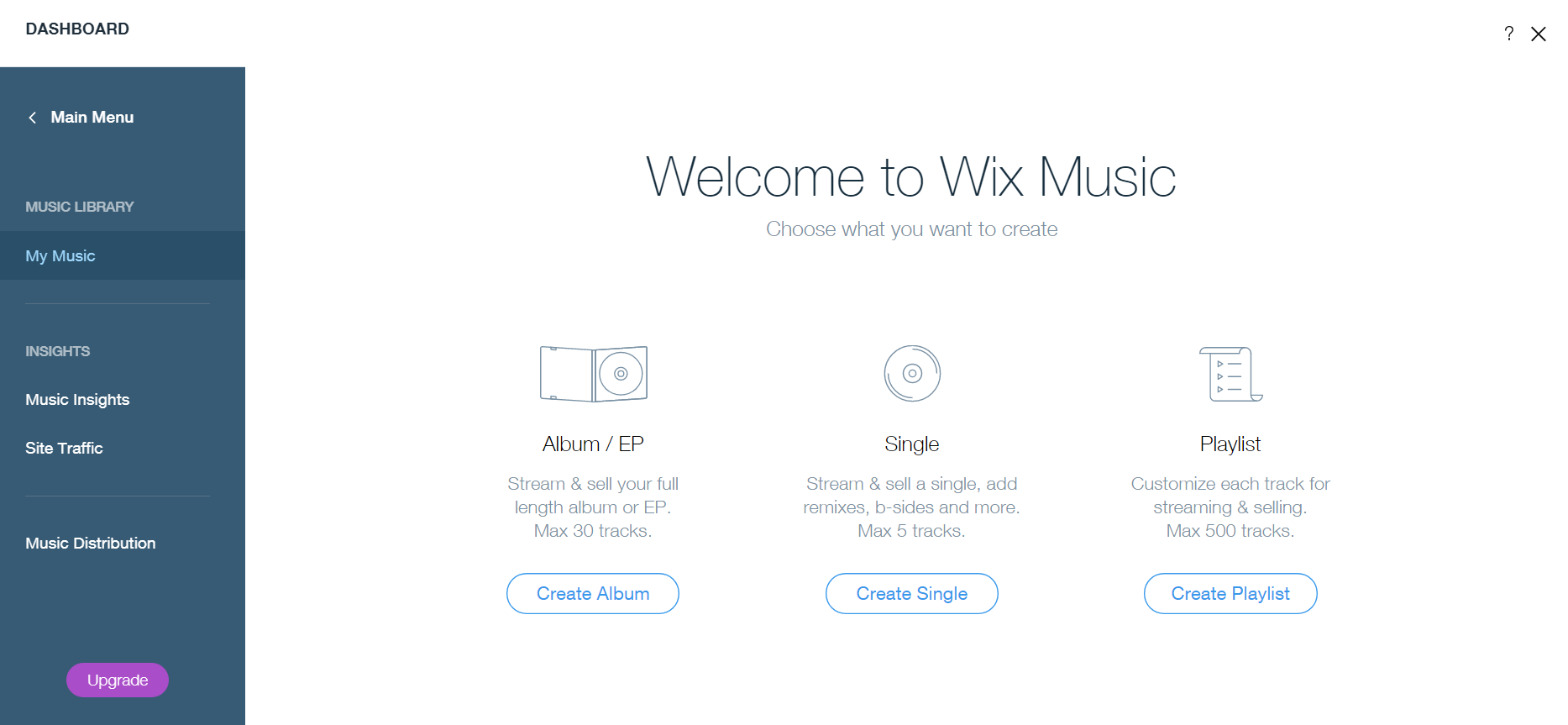
Duda has one key feature that can definitely give Wix Music a run for its money, however. And that’s the Widget Builder.
The Widget Builder allows designers and developers to create dynamic content and interactions for their users. It can integrate with a payment gateway, a booking calendar, an FAQ accordion, and so on.
What’s more, the widgets are highly versatile. You can create libraries of them to use across all of your clients’ projects.
Compared to the app marketplaces on most website building platforms, the Duda Widget Builder has some major advantages. For instance, if you build your widget here, it will work on all devices and screen sizes. What’s more, there won’t be any code conflicts with other plugins or design elements on the sites you create.
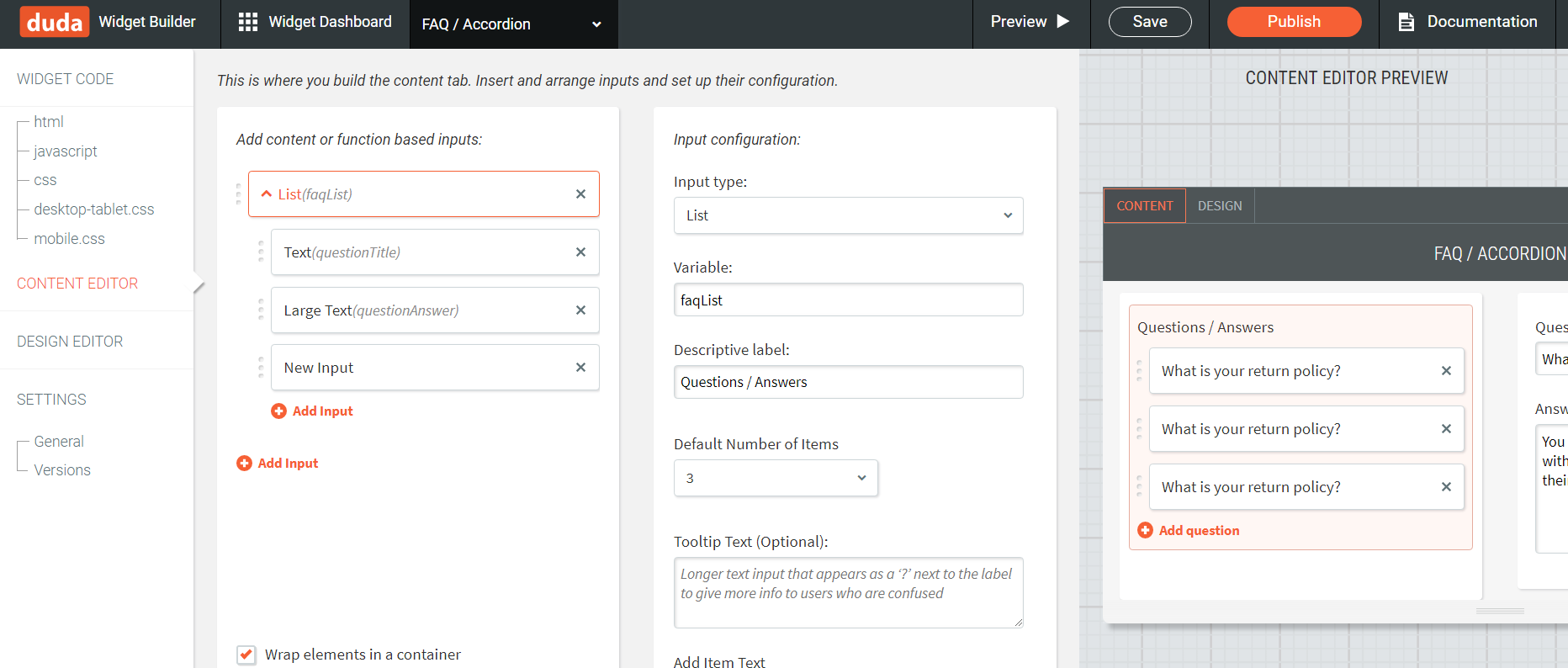
Wix’s advantage targets a narrow audience. However, Duda’s Widget Builder arguably delivers more value for web developers. And with that said, we’ll hand Duda another point for its Widget Builder.
Winner: Duda
Conclusion
At the end of the day, it all boils down to personal preference when it comes to these top-tier website platforms.
However, if you look at both tools objectively—taking into account the features of both— it becomes immediately clear that Duda far surpasses Wix for web development agencies. Mainly that’s because with Wix you’d have to use other tools to help you with client communication, team collaboration, and your branding efforts.
With Duda, on the other hand, you’ll have all the tools you need to run your web development agency.
[ad_2]
Source link






 Zoho One Seminars: Simplify and empower your business with Zoho One
Zoho One Seminars: Simplify and empower your business with Zoho One Zoho One Seminars: Simplify and empower your business with Zoho One
Zoho One Seminars: Simplify and empower your business with Zoho One WEBINAR: Small Business Doesn’t Mean Small Security: 3 Major Threats You Need to Combat
WEBINAR: Small Business Doesn’t Mean Small Security: 3 Major Threats You Need to Combat Zoho One Seminar Boston: Simplify and empower your business with Zoho One
Zoho One Seminar Boston: Simplify and empower your business with Zoho One Zoho One Seminar New York: Simplify and empower your business with Zoho One
Zoho One Seminar New York: Simplify and empower your business with Zoho One Zoho One Seminar Philadelphia: Simplify and empower your business with Zoho One
Zoho One Seminar Philadelphia: Simplify and empower your business with Zoho One Zoho One Seminar Chicago: Simplify and empower your business with Zoho One
Zoho One Seminar Chicago: Simplify and empower your business with Zoho One TECHSPO Houston 2018
TECHSPO Houston 2018 Growth & Success Con
Growth & Success Con
 Credit: MSG Photos
Credit: MSG Photos


 Joe Hurst is the paid search manager for Company Formation MadeSimple by day and runs a digital marketing agency by night.
Joe Hurst is the paid search manager for Company Formation MadeSimple by day and runs a digital marketing agency by night.